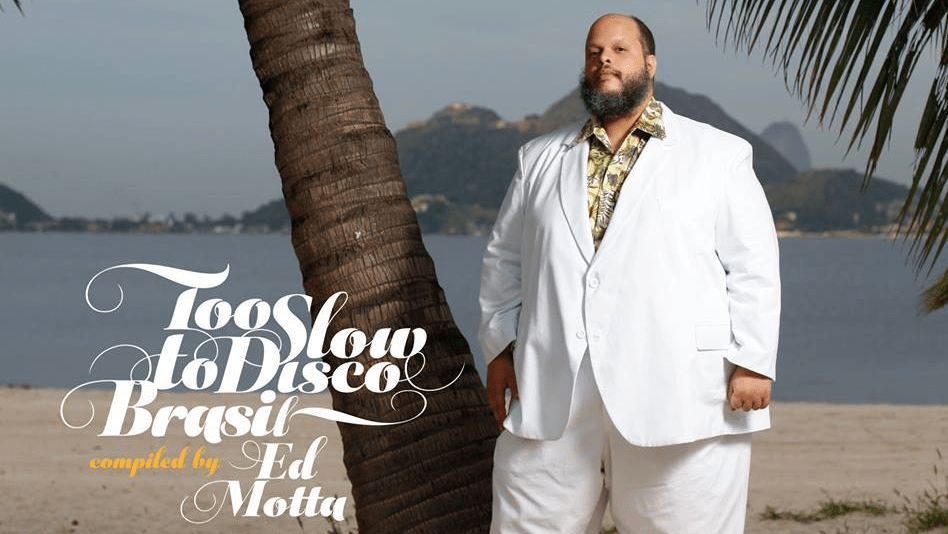Marcus, “Too Slow To Disco Brasil” is the second special after the highly-acclaimed “The Ladies of TSTD” from 2016. Why and when did you decide to compile a Brazil TSTD volume with Brazilian soul, funk and AOR?
I never was a specialist in that type of Brazilian music, like most people, I knew much more about the 60s Bossa Nova/Tropicalia scenes, but I discovered so many great Brazilian AOR tracks through Ed Motta’s and Beto Fae’s recommendations in our nerdy AOR groups. Plus, the only way to still be able to sell enough copies to finance a TSTD compilation, is to find unreleased and forgotten gems, that are not available anywhere else. And I knew, that with Ed Motta’s help, we could for sure find some of these rare beauties. The result is even more exciting than my initial idea. Apart from a lot of forgotten tracks, for the first time, we have two tracks on the compilation, that are not even listed on Discogs (Carlos Bivar and Gelson Oliveira & Luiz Ewerling).
How did the collaboration with Ed Motta come about? And how can we imagine your cooperation? Was it really just a phone call to get Ed Motta excited about the project?
Ed and I met briefly when I was the support-DJ for one of his Berlin shows and I handed him TSTD Vol 1. Then, maybe a year later, I just wrote him a mail out of the blue, asking him if he is interested in compiling a Brazilian version, and he immediately said: YES! We then started talking (through whatsapp, very modern), and then suddenly, last year, Ed came up with a list of 25 tracks, that he wanted to include, and we just started clearing! Communication with Ed is a lot of fun, because he doesn’t write anything (he is so lazy…;-), he just sends me spoken messages, so I hear his voice a lot! Which is great, because I really like the sound of his voice, on stage as well as through whatsapp…
Ed, what was your first thought when Marcus asked you to curate a Brazilian volume of TSTD?
First thing that came to my mind was to show something out of the Brazilian music stereotype, and also giving the opportunity for some less known artists to have the attention from a new audience.
Ed, your over 30,000-strong record collection is legendary. The Vinyl Factory called you the “collector’s collector”. Was a walk through your library-sized vinyl vault the starting point to compile the collection?
It was pretty much emotional, songs that I like to hear for years. My record collection is my biggest influence, I have a huge interest and lots of genre.
Marcus, during the work on the new volume, did you have the opportunity to rummage through Ed Motta’s record collection in Rio, or was the collaboration mainly via the internet?
Unfortunately not, I didn’t have the time to go to Brazil for ages, last time I was there must have been in the 90s and I still listened to Morrissey and Prefab Sprout… We had a very modern, pure Internet-relation!
Ed, even you grew up in Brasil, Brazilian music was not the strongest influence in your youth. You started as a rock collector and played in a hard rock band. How and when did you discover your love for Brazilian soul, funk and AOR?
In fact these artists I always liked since my youth, the traditional Brazilian material that is something I started later to pay attention.
Ed, what characterizes in your opinion the Brazilian approach to soul, funk and AOR?
Brazilian music had a huge influence on worldwide music since the 60s with Bossa Nova. Lots of composers used Brazilian chord changes: Stevie Wonder, Charles Stepney, Burt Bacharach etc. But the compilation is about artists that have an international influence in their art.
Ed, Brazilian Boogie seems to be experiencing a renaissance especially in Europe. Albums by artists like Marcos Valle are being rediscovered. How present is Brazilian Boogie and AOR of the 70s and early 80s in today’s Brazilian music scene?
Unfortunately there’s nothing like that anymore. New acts are pretty based on indie rock structures, the same idea punk was proposing, you don’t need to be a musician, the famous do it yourself, actually do it wrong lol. But comparing to nowadays music the punk thing sounds like Stravinsky, music became worse and worse.
Marcus, licensing the titles has always been one of the most difficult works in creating a compilation like TSTD. How difficult was the licensing process this time?
Licensing wasn’t as hard for us this time, because Ed knows EVERYBODY in Brazil, so he really made all the contacts that we didn’t have. In general the story was the same as before: The majors in Brazil didn’t find lots of the tracks in their “system”, so with Ed’s help, we found and contacted the artists, and they all were very enthusiastic. Next steps were: Maybe you know, that I had a record-label in the 90s called Bungalow Records, and my partner Holger Beier lives in Brazil for ages now. After Ed’s initial contact, the licensing department of TSTD/City Slang sent a proposal, and then Holger phoned the artists and explained the facts, but also had to answer, why the hell a German record company was doing such a compilation….
Marcus, in your hunt for licenses you have had direct contact with the artists themselves, who have given you insights into their work and the epoch. Have you ever thought of publishing the collected stories in a book?
Thought about it a bit, but I am not a writer at all. I get totally stressed, only by thinking about it…! We are working on a youtube video/documentary explaining some of the stories. More to come…
Marcus, we all remember the times, when smooth soft rock sounds were out of favour, only associated with Time Life compilations for housewives. How did you experience the renaissance of the smooth West Coast grooves in the last decade?
I think it all happened very naturally. Thanks to the internet, nowadays it is really easy to find other freaks and nerds in the world, who like what you do. I think the blog AOR DISCO really put people together that were the early ones for the AOR revival.
Marcus, the TSTD series has become an institution in recent years. Above all, you have managed to reach not only West Coast and Yacht Rock lovers, but also a young mainstream audience. What do you think, are the reasons for this success?
You can find the music in a lot of big contemporary bands like Phoenix, The XX, Daft Punk, which got a young audience to listen to the music. And I think that all the reedits and reworks made it possible for that music to be played in clubs/bars, which for today’s youth still is the No 1 way to find music. When I deejay in my resident Monarch parties, I often see young dancers approach me with their mobiles, where they typed in the song they want to listen to. My first thought is, oh no, somebody wants to listen to Lady Gaga… , but no, it is really surprizing, they mainly wish for a certain Fleetwood Mac edit…. Plus: The AOR sound kinda is the new “chill-out” music for many people, and there are many good reasons in today’s world to relax!
Marcus, there is always a “holy grail” for a record collector. For a long time you had been struggling for the rights to the Grateful Dead song “Shakedown Street” for the last TSTD volume. Is there still one special song that you really want to release as part of the series?
Yes, there is one, which is impossible to clear, because Columbia/Sony don’t know anything about it and the artist is not traceable through all channels that I can think of until today…: “Bill House – You’re no better than a common thief”. Together with Ned Doheny’s “Get it up for love”, this song to me was the start of my new AOR Love and the start of me thinking, that smooth sound could be liked by a modern audience. Unlike some other labels, we do not release tracks, without a contact to the right owners or the artists, so I am still hoping for a miracle…
Marcus, can we expect more TSTD world trips in the future – maybe to Japan?
Talking about labels releasing uncleared tracks…. Sad news, Sony Japan is so angry because of the many songs (and complete albums) by their Japanese City Pop artists, which have been released uncleared and illegally in Europe and the US, that they do not give away any licenses to foreign labels at the moment.
P.S.: of course that doesn’t stop me still trying to find a way to release a Japanese City Pop /AOR compilation…..
Ed, you are currently working on a new album. With your last album “Perpetual Gateways” you’ve moved to the soul and jazz side of town. What can we expect this time?
It’s a surprise!
Photo: Too Slow To Disco
This interview was first published on June 14, 2018.

